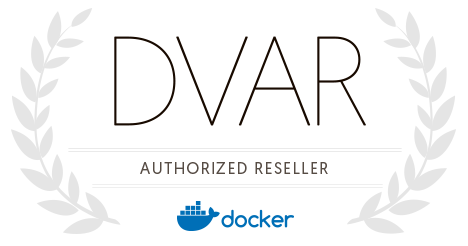GLiNTECH is here to provide your enterprise with the necessary consultation and training services to allow you to leverage the game-changing benefits the Docker enterprise solution can bring you.
The future of app development has arrived and GLiNTECH is here to help you implement it. Docker is a Containers-as-a-Service platform for the enterprise that allows any app to run unchanged on any laptop, portable device, cloud service, or data centre VM. Not only will the same app run almost anywhere without adaptation of the same configurations, but it can also be built, packed, and shipped from almost any platform. Using Docker, your developers can build and test an app on a laptop with it being subsequently scalable, with native levels of performance over multiple versions, configurations, and users.
As an Authorized Docker Value Added Reseller in Australia, GLiNTECH is here to provide your enterprise with the necessary consultation and training services to allow you to leverage the game-changing benefits the Docker enterprise solution can bring you.
Introduction to Docker
What Is Docker?
Like the shipping containers that inspired the name, Docker ‘containers’ wrap your software up in standardised units that contain all of the dependencies an app requires to run. This filesystem unit contains the code, system tools, libraries, and runtime of the app so it can be unpacked and run in any environment.
Compact
Because Docker containers have a single OS kernel when running on a single machine they start immediately and use RAM more efficiently. Common files are used for the construction of images via layered filesystems, which increases the efficiency of disk usage and image downloads.
Safe
An additional level of application protection is facilitated by Docker containers isolating applications from both the underlying infrastructure and each other.
Why Integrate Docker?
So what are the improved outputs that the Docker engine results in for your business?
Goodbye Environmental Inconsistencies
Your developers will no longer have to deal with the installation of the same configurations for different environments due to Docker containers packaging and shipping all application dependencies and configurations in one unit.
Unchain Your Developers’ Creativity
Because developers will no longer be restricted by approved tooling and language stacks as a result of Docker containers’ isolation characteristics, they will be free to use the language and tools they feel are best suited to a particular application service, mixing and matching between services.
More Efficient Developer Onboarding
Because Docker means you can easily take copies of your live environment so any Docker endpoint can run copies of production code locally, you won’t have to waste time setting up developer environments and new instances.
Applications
While this is by no means an exhaustive list, here are some of the main ways companies are applying the strengths of the Docker Containers-as-a-Service platform:
Infrastructure Optimisation
Because Docker containers do not require either a hypervisor or guest OS as VMs do, storage costs are minimised and hypervisor licensing fees eliminated. Only the necessary dependencies for an application to be built, shipped, and run are held within the container unit.
Big Data
Docker’s lightweight character allows enterprises to counter-balance the exponential growth in data volumes that results from Hadoop-based ecosystems, pulling workloads from a number of tools. This makes it easier for big data to be analysed and leveraged.
DevOps
Docker provides many of the crucial tools to allow enterprises to improve the application development process by going DevOps, breaking down many of the barriers that previously existed between Development and Operations teams.
CI/CD
Developers are able to develop and test applications easily and quickly between environments, and work more efficiently in collaboration as a result of integrations with tools such as Bamboo.

